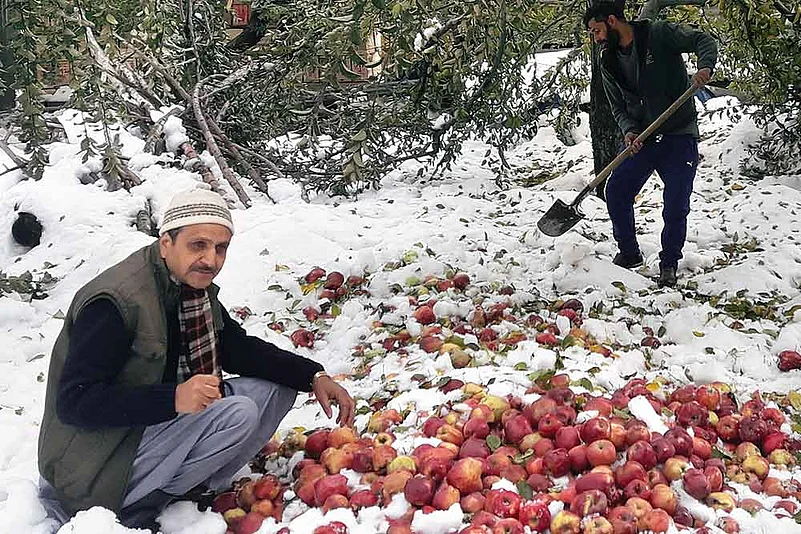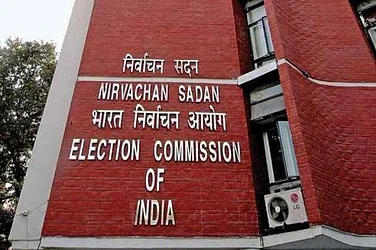Mushtaq Ahmad Malik could barely recognise his orchard. A thick blanket of snow covered the apple trees, many of them uprooted. Most lay in tangled heaps, branches twisted by the sheer force of nature. And the apples? They lay scattered, most of them no longer fit for consumption. A night of blizzard on November 8 has laid waste the 58-year-old apple-grower’s month’s of back-breaking labour in the picturesque hamlet of Pahnu, a 30-minute walk from his house in Shopian.
For apple-growers of Kashmir, already battling emotional trauma and economic hardships following staggering political changes, the November night’s heavy snowfall has only added to their misery. For Malik, daily life has become a routine since the devastation of his orchard. “(After the snowfall) it took to me three hours to reach my apple orchard from my home. My heart sank on seeing the produce buried under snow,” he says. Around 700 apple trees once stood on his now-flattened orchard spread over just under one acre.
Every morning since November 10, Malik walks up to his orchard, hoping to salvage whatever remains of his main source of income.
He has engaged six labourers for the job, instructing them on how to go about their business—push the fallen trees upright, give them additional support till the roots are strong to hold the tree, gather the fallen apples, sort them according to their shape, size and condition. Some trees are too badly damaged; he asks the workers to leave them alone. This is hard work—the feet sink into the fallen snow, making walking difficult. The bitter cold also saps their energy quickly. But Malik knows he must try. He points to a tarpaulin sheet and asks the men to cover the 4,000-odd boxes of apples plucked before the evening of November 7.
He was expecting to transport them to the cold storage last week when unexpected snowfall derailed everything. It was a bumper crop this year and Malik had expected to harvest around 5,000 boxes of apples. The harvest was delayed by a month in south Kashmir due to the communication blockade in the Valley since the abrogation of Article 370 on August 5. Malik gets angry when informed about government claims that only 30 per cent of the apple orchards were destroyed. “This pains us more. Instead of sending us scientific advisors and giving us some technological help, the government is putting out wrong figures to underestimate the damage. The lies are unbearable,” he says.
As he wraps up for the day, to begin afresh the next morning, Malik knows that it will be a long haul. “It will take me another 20 years to restore all that I have lost. I cannot even sleep anymore.”
Also Read:
By Naseer Ganai in Shopian


























